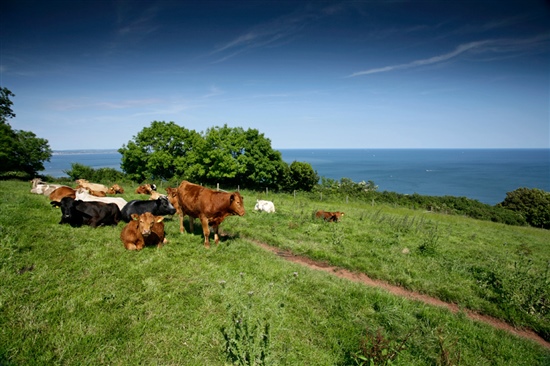
Extra places available!
Devon Farming, Food and Nature Celebration takes place this Saturday 17 May, 10 am-4 pm, on New Churston Farm, Churston, Nr Brixham.
This free event is open to anyone involved with Devon's farming, food production and related tourism and we are thrilled that there are now some extra places available.

Image: Cattle grazing meadow managed for cirl bunting by Andy Hay (rspb-images.com)
…